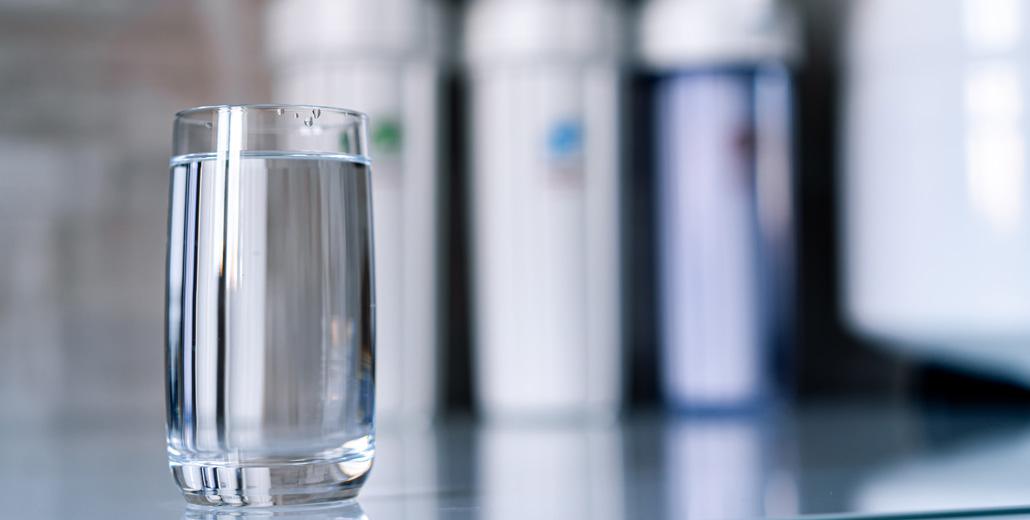
Are you worried about the quality of your drinking water? Have you been shopping around for a water filter or softening system. Knowing how water filters work will help you make a better choice about which one is right for you and your family.
Local Water Quality
Atlantic County is proud of its water quality. In fact, it shares water testing results publicly online for anyone to see.
Also known as the Consumer Confidence Report (CCR), it provides detailed information outlining its compliance with regulations. It also details the sources of water the utility uses to provide services and shares updates on new projects.
Why Add Water Filtration?
Municipal water treatment facilities need to meet the EPA national standards for water safety and cleanliness. While Atlantic County provides safe water, the flavor and odor may not be up to your standards.
Besides having a chemical taste, municipal water often carries mineral sediments. This “hard water” can leave deposits on your bath fixtures. You may even feel itchy skin from these minerals.
A water filter can remove some of the chemicals used to treat your water as well as any mineral sediments. This results in better tasting water and can reduce hard water deposits, depending on the type of filtration used.
Understanding how water filters work and the different types of filtration available is key to choosing one that performs as you expect.
Water Filtration Basics
Water filters use either mechanical or chemical processes to clean water. More commonly, they use a combination of the two processes.
Mechanical Filtering
Mechanical methods are the oldest, most common, and most cost-effective method for filtering water.
Media filters
Less expensive water filters use a straightforward mechanical method for removing contaminants. These filters feature a permeable screen comprised of media that offers plenty of surface area to trap contaminants. When water passes through the screen, the filter collects small particles.
Reverse osmosis filtering
You may have heard about reverse osmosis and wondered how it works. It’s also a form of mechanical water filtering. In this case, it uses a special media called thin film composite (TFC).
TFC is made from several layers of different materials, each with its own unique filtering ability. Developed for the desalination industry, reverse osmosis offers excellent water filtering results.
Charcoal processing
Humans have been using charcoal to purify water for thousands of years. Its unique abilities were harnessed for industry as far back as the 1700s.
Because of its intricate internal structure, it features a vast number of pockets where it can capture various particles. With its extensive internal and external surface area, charcoal works like sponge to absorb chlorine, lead, and other contaminants
Chemical Water Filtering
Water purification is often achieved by adding certain chemicals. This is how many municipalities treat wastewater. For example, many use chlorine or chloramine to kill bacteria. However, most of us find the resulting aroma and flavor pretty distasteful.
Other chemicals used in water filtration affect the contaminates themselves, either rendering them harmless or making them easier to remove.
Flocculation
When contaminant particulates are too small to be easily filtered, flocculant agents are used to make them easier to capture. Mineral salts are added to the water to destabilize the electrical charge of the particles. This causes them to aggregate and become large enough for mechanical filtering.
Sequestration
When mineral sediments are the primary concern, sequestration is used to prevent any buildup on pipes or fixtures. Polyphosphates are added to the water to keep the particles dispersed in the water. It doesn’t remove any of the mineral particles, but it does keep them from building up, causing deposits, or damaging any fixtures.
Ion Exchange
Ion exchange is a popular method of water filtration for drinking water. This process also alters the electrical charge of contaminant particles in the water. In this method, the filter passes the water through beads made of ion exchange resin.
In water softeners, these beads capture magnesium and calcium ions and exchanges them with sodium ions. Other filters may contain beads that perform the same trick with other ions, such as those in lead.
Ion exchange is often use in water filtering systems that also include a mechanical filter, such as activated charcoal, to remove additional particulates.
Fresh and Clean
If you’re worried about the quality of your drinking water, there’s plenty of good news. First of all is that Atlantic County provides safe, clean water and remains transparent will all residents. They even offer tips for preventing groundwater contamination.
In addition, water filters range from point-of-use units to home-wide systems, and they’re affordable and effective.
Make an appointment today with the plumbing pros at Benjamin Franklin Plumbing in Pleasantville. We can install a water filtration system in your home that delivers fresh, clean, delicious drinking water.
